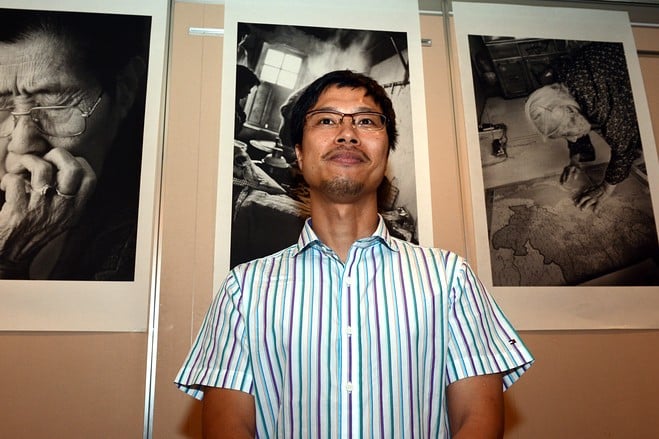
The Tokyo District Court ordered Nikon to pay 1.1 million yen ($9,100) to Japan-based cameraman Ahn Sehong, a company spokesperson told AFP.
Ahn filed a lawsuit in 2012, demanding compensation of 14 million yen, after Nikon abruptly cancelled his event scheduled to be held at Nikon Salon in Tokyo, a site where people can hold individual exhibitions.
 PHOTO COURTESY: ahnsehong.com
PHOTO COURTESY: ahnsehong.comThe exhibit featured 37 photos of some of the now-elderly Korean women forced to serve as 'comfort women' -- a euphemism for women forced into prostitution -- for Japan's military during World War II.
Nikon, which had initially approved Ahn's proposal for the exhibition, unexpectedly cancelled the show three days after a newspaper article about it led to public complaints.
The Tokyo District Court at the time, however, ordered Nikon to allow the exhibit to go on.
Japan ruling party forms group to review modern history
 PHOTO COURTESY: ahnsehong.com
PHOTO COURTESY: ahnsehong.com"I'm happy that freedom of expression has been acknowledged," Ahn told reporters after the court ruling, according to Sankei Shimbun newspaper.
Nikon had justified its decision to close down the show out of safety concerns, and the spokesman said the company felt the court's decision partially reflected an acknowledgement of its position.
"We'll carefully consider whether to appeal or not," he said.
The wartime forced sex issue is a sensitive and divisive one in Japan, which colonised the Korean peninsula from 1910-1945, while its military invaded parts of China and other areas of Asia during World War II.
 PHOTO COURTESY: ahnsehong.com
PHOTO COURTESY: ahnsehong.comMany Japanese agree that young women from the Korean peninsula and elsewhere in Asia were systematically and repeatedly forced into having sex with Japanese soldiers during the war.
But some argue that local pimps and businesses tricked the women into prostitution rings, with Japanese soldiers buying their services as customers with the military having no direct role in the running of brothels.
Explosion damages toilet at Japan's controversial shrine for war dead
The issue has been a major irritant between Seoul and Tokyo, with South Korea repeatedly asking for talks on compensation.
Japan has consistently cited a broad 1965 compensation deal with Seoul that led to the normalisation of diplomatic relations as having settled all outstanding issues.
But Friday's court decision came as Japan and South Korea announced that their foreign ministers will meet next week in a bid to reach a final settlement over the issue.

















COMMENTS
Comments are moderated and generally will be posted if they are on-topic and not abusive.
For more information, please see our Comments FAQ